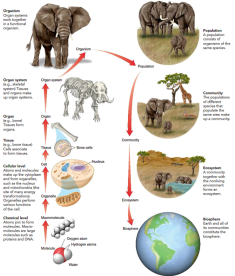Introduction
What does “nature” mean ?
This is the first question I ask you in this class !!
Whats is "Nature" ?
A- a famous scientific journal.
B- the physical, geological, tectonic, meteorological, biological, evolutionary "forces" and principles that constitute the universe.
C- the biophysical environment, the habitat and the so-called natural environments.
D- the essence, the innate character, the set of fundamental properties of a thing or a being.
E- a synonym of universe or cosmos.
What do you think is a true answer ?
Impossible d'accéder à la ressource audio ou vidéo à l'adresse :
La ressource n'est plus disponible ou vous n'êtes pas autorisé à y accéder. Veuillez vérifier votre accès puis recharger le média.
Impossible d'accéder à la ressource audio ou vidéo à l'adresse :
La ressource n'est plus disponible ou vous n'êtes pas autorisé à y accéder. Veuillez vérifier votre accès puis recharger le média.
What is ecology ?
The term "ecology" was created by Heackel in 1866 to designate the science of habitat (from the Greek oikos = house, dwelling); it was a question of studying living beings no longer in breeding or laboratory but in their natural habitat. Nowadays, the definition tends to be more "systemic": it is said today that ecology is the study of the interactions between living organisms and the environment in which they live, and of living organisms among themselves, under natural or modified conditions.
Ecology is interested in the biosphere, and the biosphere is all the living beings on the planet, and all the environments they inhabit. The term ecosystem is used to characterize a sustainable interaction between organisms and an environment.

Ecology is also interested in biodiversity, which refers to the variety of life forms on Earth. This term is composed of the prefix bio (from the Greek βίος "life") and the word "diversity". It is assessed by considering the diversity of ecosystems, species and genes in space and time, as well as the interactions within and between these levels of organization.
Ecology can only be understood through evolution. It is based on observations on very varied time scales.